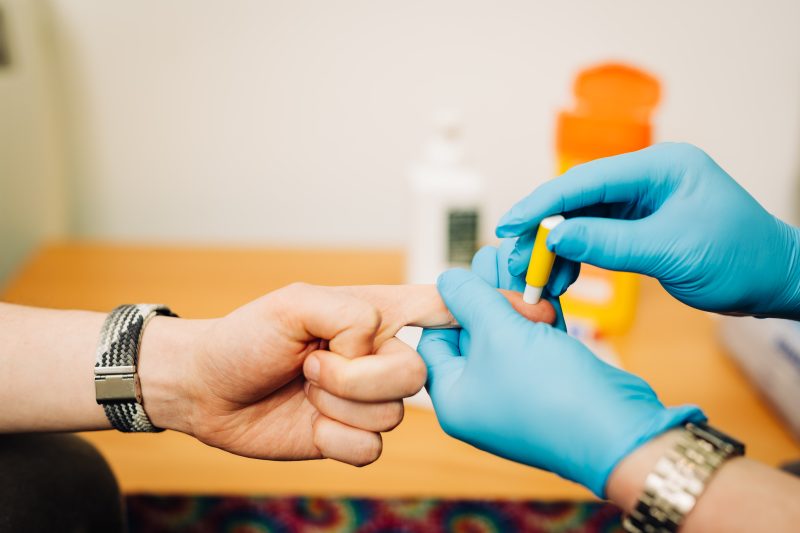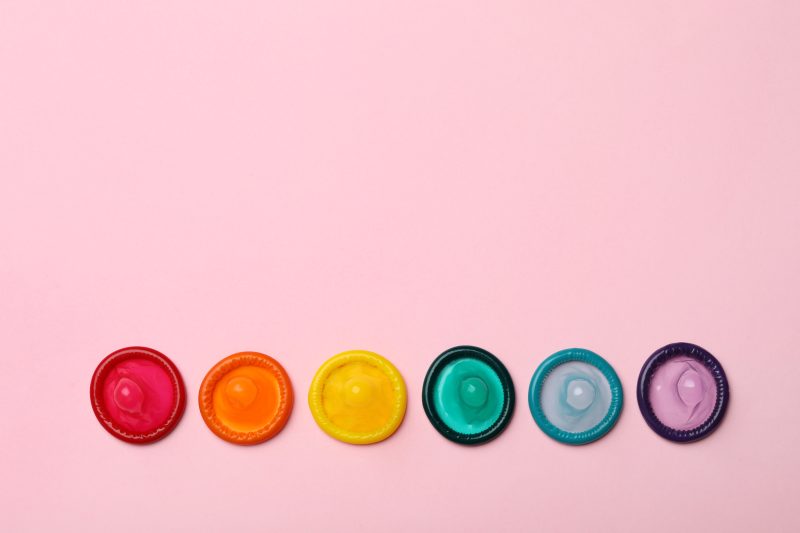With many STIs not displaying any clear symptoms, testing is the only way to know for sure if you have an STI.
Key things to know
There are many ways you can get tested for STIs:
- at Waverley Care we offer access to free, community based testing for HIV, syphilis and hepatitis B and C across Scotland,
- NHS sexual health clinics offer a ‘one-stop shop’ for you to get regular sexual health check-ups
- many GP surgeries are able to provide sexual health testing,
- community-based testing clinics offer access to a variety of services based in local venues,
- for some STIs, including HIV, you can do a test at home.
If you are interested in getting tested at Waverley Care, you can search our testing services near you by using our service finder.
Service finder
Why should I get tested for STIs?
With lots of STIs not showing clear symptoms, regular testing is the best way to know your status and to feel more in control of your sexual health.
Regular testing means that any infections can be picked up and treated early. It also means you can make informed decisions about your sexual health and prevent the spread of infections.
If you are sexually active, we recommend getting tested for STIs at least every 6 months. However, if you have multiple partners or have anal sex, we recommend you get tested every 3 months.
What does an STI test involve?
STI testing in a sexual health clinic usually involves either a urine or a blood sample, or a swab from the urethra or genitals. What sample or swab you will need depends on the type of STI you are testing for.
- Testing for chlamydia and gonorrhoea usually requires only a urine sample or a self-taken swab.
- Testing for HIV usually requires a blood sample.
- Testing for syphilis requires a blood sample and you may also have a swab taken if you have any ulcers.
- Tests for herpes aren’t usually done unless you have sores on your genitals or anus. In this case, a swab will be taken of the sore.
If you have any questions about getting tested for STIs, you can get in touch with us for information and advice.
Free STI self-sampling kits are now being offered by many sexual health services in the UK for people who aren’t showing any symptoms of an STI but want a routine check-up.
These self-sampling kits can be used to test for the most common STIs, including chlamydia and gonorrhoea, as well as syphilis and HIV.
The self-sampling kit will arrive in the post in a plain unmarked envelope or letterbox-friendly box and will have everything you need to take the samples yourself, and a freepost return label to send them back to a laboratory to be tested.
What are testing windows?
The testing window is the amount of time that needs to pass after exposure to an STI before it will be picked up by a test.
A clinician at the sexual health clinic will always advise you about your risk, and the potential need for retesting if you are within the window period.
To be sure you’re getting tested the correct length of time after exposure, here is how long to wait before getting an STI test:
- Chlamydia: 10 days after exposure
- Gonorrhoea: 10 days after exposure
- Syphilis: 6 weeks after exposure and retest after 3 months
- Hepatitis B: 4 to 6 weeks after exposure
- Hepatitis C: 3 weeks after exposure
- HIV Anti Body Test (Rapid Test): 3 months after exposure
- HIV Blood Test (venipuncture test): 4 weeks after exposure
- Herpes: 6-12 weeks after exposure
- HPV (Human Papillomavirus): 4 months after exposure
However, if you think you have developed any symptoms of an STI infection you should contact or visit your sexual health clinic as soon as possible. You should also abstain from sexual contact until you have discussed your symptoms with a sexual health consultant.
How long will it take to get my results?
With some tests, you can get the results – and treatment, if you need it – on the same day. For others, you might have to wait at least a week. If this is the case, the clinic will check how you would prefer to receive your results.
If you are called into the clinic for your results, that does not necessarily mean that your STI test was positive. You might get called in for a number of reasons, including a doctor wanting to discuss the most suitable prevention methods with you – such as PrEP.
With self-sampling kits, you will normally receive your results via text message/phone call or will be able to check them online. Sometimes you might need further tests or a follow-up appointment to confirm test results. You should always contact your local sexual health services if your tests results are positive or inconclusive.
What if I test positive for an STI?
If you test positive for an STI, you will be asked to go back to the clinic to talk about your results and the treatment you need.
Many STIs can be cured with antibiotics. Some infections, such as HIV, have no cure but there are treatments available. The clinic can advise you on these and signpost you to the support services.
If possible, tell your sexual partner and any ex-partners so they can get tested and treated as well. If you don’t want to do this, the clinic can usually do it for you. This is called partner notification, and the clinic won’t reveal who you are.
Looking for advice?
If you are looking for information and advice on the transmission, prevention and treatment of sexually transmitted infections, we are here to help. Get in touch by filling out our contact form.




